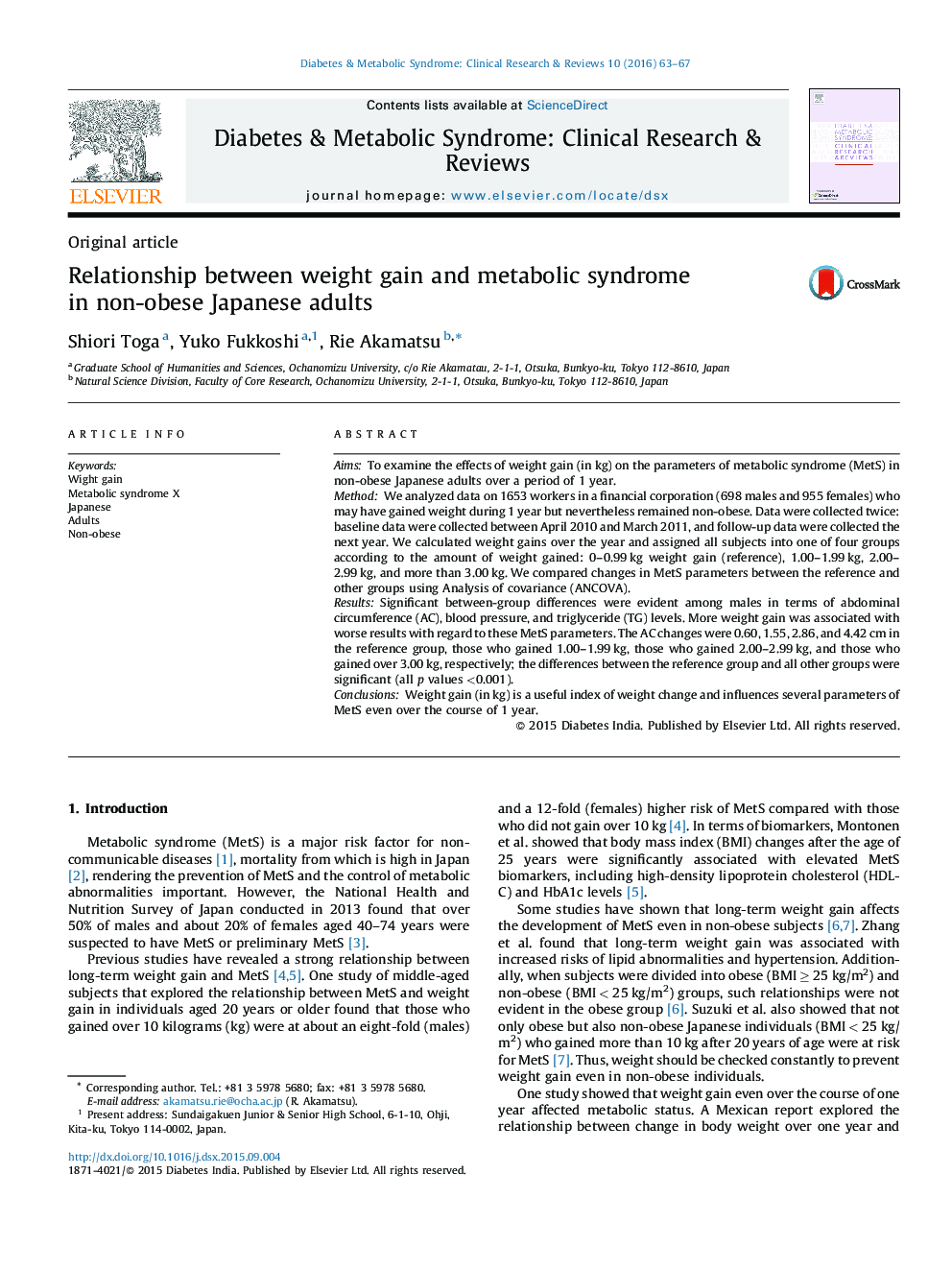| Article ID | Journal | Published Year | Pages | File Type |
|---|---|---|---|---|
| 2909825 | Diabetes & Metabolic Syndrome: Clinical Research & Reviews | 2016 | 5 Pages |
AimsTo examine the effects of weight gain (in kg) on the parameters of metabolic syndrome (MetS) in non-obese Japanese adults over a period of 1 year.MethodWe analyzed data on 1653 workers in a financial corporation (698 males and 955 females) who may have gained weight during 1 year but nevertheless remained non-obese. Data were collected twice: baseline data were collected between April 2010 and March 2011, and follow-up data were collected the next year. We calculated weight gains over the year and assigned all subjects into one of four groups according to the amount of weight gained: 0–0.99 kg weight gain (reference), 1.00–1.99 kg, 2.00–2.99 kg, and more than 3.00 kg. We compared changes in MetS parameters between the reference and other groups using Analysis of covariance (ANCOVA).ResultsSignificant between-group differences were evident among males in terms of abdominal circumference (AC), blood pressure, and triglyceride (TG) levels. More weight gain was associated with worse results with regard to these MetS parameters. The AC changes were 0.60, 1.55, 2.86, and 4.42 cm in the reference group, those who gained 1.00–1.99 kg, those who gained 2.00–2.99 kg, and those who gained over 3.00 kg, respectively; the differences between the reference group and all other groups were significant (all p values <0.001).ConclusionsWeight gain (in kg) is a useful index of weight change and influences several parameters of MetS even over the course of 1 year.
